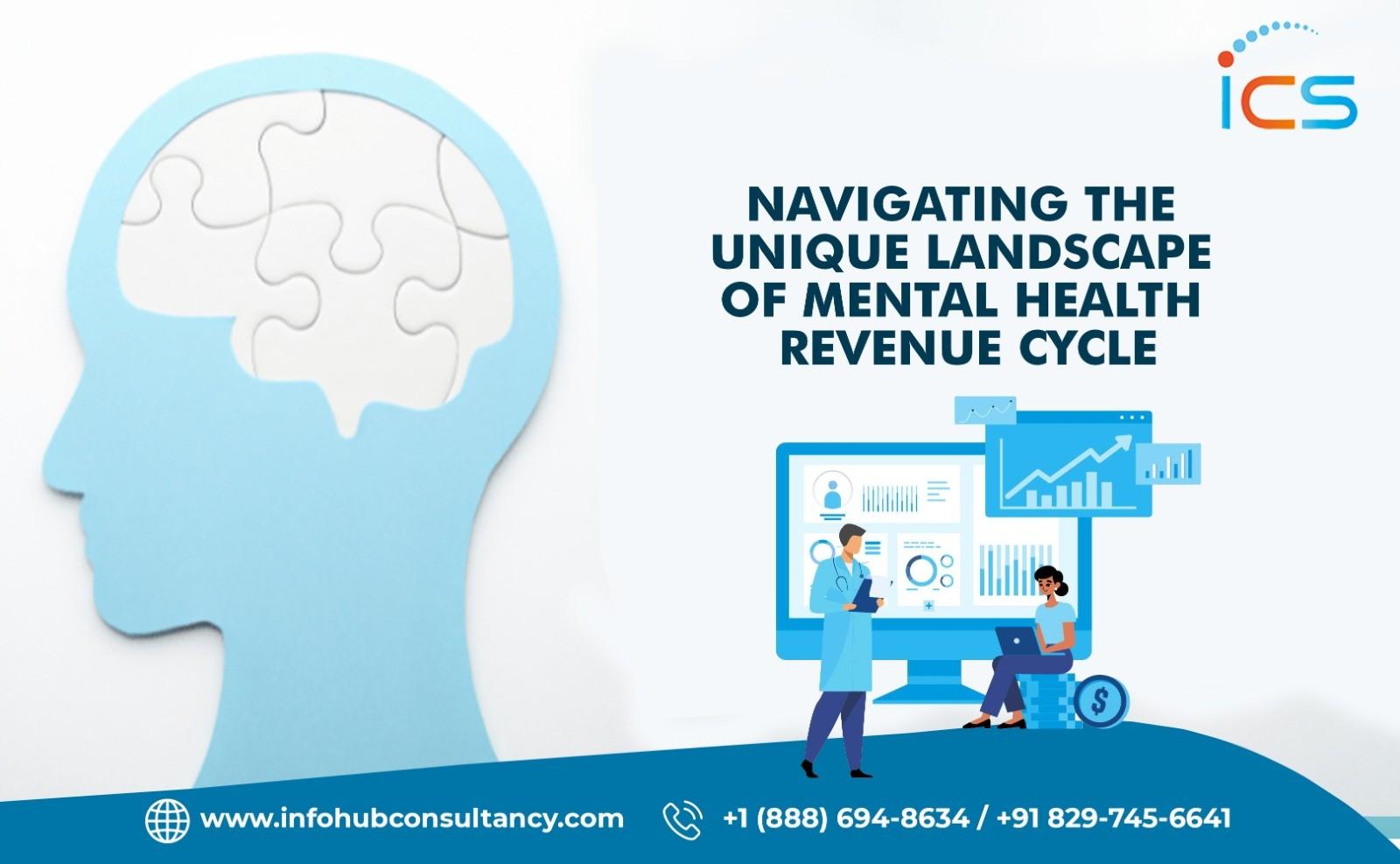

Navigating the Unique Landscape of Mental Health Revenue Cycle

In the realm of healthcare, the management of the revenue cycle holds paramount importance, and this is particularly true for mental health services. The landscape of the mental health revenue cycle is distinct and requires careful navigation to ensure optimal financial performance while providing muchneeded care to patients. In this article, we will delve into the intricacies of the mental health revenue cycle and explore the various components that shape this unique landscape.

Understanding Mental Health Revenue Cycle
To grasp the complexities of the mental health revenue cycle, it is essential to comprehend its definition and the key components it encompasses.

Patient Registration and Intake Process
The first step in the mental health revenue cycle is patient registration and intake. Accurate patient information is crucial for effective billing and reimbursement.

Insurance Verification and Eligibility
Navigating complex insurance systems is an integral part of the mental health revenue cycle. Providers need to verify patient insurance coverage and eligibility to avoid claim denials and delays.
Coding and Documentation
Proper coding and documentation are essential for accurate billing and reimbursement in the mental health industry. Providers must use appropriate diagnosis codes to reflect the nature and severity of the patient’s condition.
https://infohubconsultancy.com


Claims Submission and Reimbursement
Submitting clean claims is vital to ensure timely reimbursement. Mental health
providers must adhere to specific requirements and guidelines set forth by insurance companies when submitting claims. Managing Patient Payments and Collections
Collecting patient payments is an integral part of the mental health revenue cycle.
Providers need to collect co-pays, deductibles, and outstanding balances
https://infohubconsultancy.com


Compliance and Regulatory Considerations


Maintaining compliance with various regulations and standards is crucial in the mental health revenue cycle. Healthcare providers must adhere to the Health Insurance Portability and Accountability Act (HIPAA) to protect patient privacy and confidentiality.
Embracing Technology in the Revenue Cycle
Technology plays a pivotal role in optimizing the mental health revenue cycle. Electronic billing and claims management systems can automate and streamline processes, https://infohubconsultancy.com





